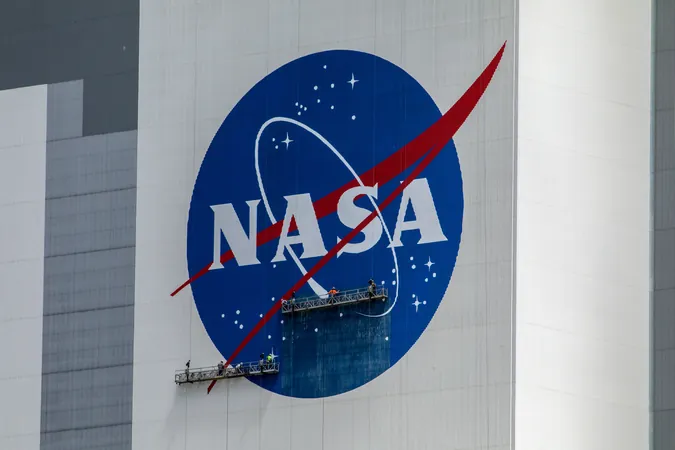
NASA's Future in Jeopardy: White House Proposes Dramatic Budget Cuts
2025-04-14
Author: Amelia
A Shock to the System: NASA Faces Drastic Budget Cuts
In an alarming move, the US administration is poised to dramatically reduce NASA's science budget by nearly 50%, according to a document leaked from the White House. This budget proposal, referred to as a "passback," has raised concerns within the scientific community and does require congressional approval.
A Dark Age for Space Exploration?
This proposed slashing of funds has left many reeling, with organizations like the Planetary Society describing it as an impending "dark age for space science." The cuts could endanger several ongoing and future missions, potentially putting a halt to valuable research and discoveries.
The Ripple Effect: Job Loss and Brain Drain
Critics are sounding the alarm about the repercussions on talent within NASA. A source articulated the frustration with an expletive, fearing that skilled scientists and contractors may seek better opportunities abroad. Former Voyager scientist Dr. Garry Hunt warned that the unstable financial support could push young engineers and scientists to relocate to countries like the UK, Germany, and France, which offer more stable funding for space initiatives.
Impending Cuts to Key Missions
Although the passback proposal ensures that the Hubble and James Webb Space Telescopes will continue to operate, it threatens the future of crucial projects like the Nancy Grace Roman Space Telescope, expected to launch in 2027. Additionally, it could lead to the shutdown of the Goddard Space Flight Center.
A Call to Action for NASA's Leadership
With Jared Isaacman nominated as the new NASA administrator and pledging to be an "advocate for science," the timing of these proposed cuts raises eyebrows. It will be a significant test for Isaacman to see if he can push back against these budget constraints during forthcoming hearings.
The Mars Sample Return Mission on the Chopping Block
The looming budget cuts could terminate vital initiatives like the Mars Sample Return mission, which is crucial for understanding our planetary neighbors. Frustratingly, this has potential consequences for job security and mission capabilities at the Jet Propulsion Laboratory (JPL), threatening their ongoing projects that many deem essential.
The Potential for International Competition
Further complicating matters, Hunt expressed concern that if China successfully retrieves Mars rocks before the US, political leaders may question the necessity of funding further NASA Mars missions. This could undermine the agency’s objectives and global standing in space exploration.
Hope vs. Reality: Can NASA Survive?
Isaacman had previously emphasized utilizing NASA's scientific talent and capabilities to accelerate discoveries. However, if these budgetary proposals—still awaiting legislative approval—are enacted, it seems the ambitious goals of NASA may face an unyielding financial wall.









 Brasil (PT)
Brasil (PT)
 Canada (EN)
Canada (EN)
 Chile (ES)
Chile (ES)
 Česko (CS)
Česko (CS)
 대한민국 (KO)
대한민국 (KO)
 España (ES)
España (ES)
 France (FR)
France (FR)
 Hong Kong (EN)
Hong Kong (EN)
 Italia (IT)
Italia (IT)
 日本 (JA)
日本 (JA)
 Magyarország (HU)
Magyarország (HU)
 Norge (NO)
Norge (NO)
 Polska (PL)
Polska (PL)
 Schweiz (DE)
Schweiz (DE)
 Singapore (EN)
Singapore (EN)
 Sverige (SV)
Sverige (SV)
 Suomi (FI)
Suomi (FI)
 Türkiye (TR)
Türkiye (TR)
 الإمارات العربية المتحدة (AR)
الإمارات العربية المتحدة (AR)